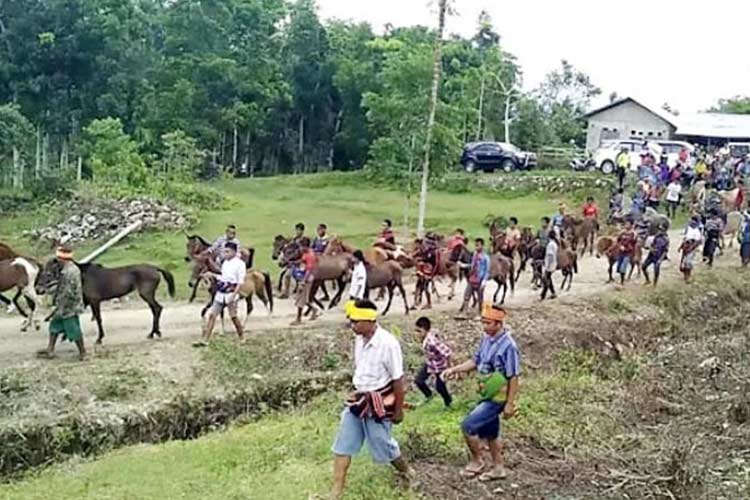TIMES AUSTRALIA, SUMBA TIMUR – In the culturally rich land of Sumba, the concept of "Belis" is intricately woven into the tapestry of marriage traditions. It synonymous with dowry or bridal gifts, represents the wealth brought during the engagement process. This ceremonial exchange involves valuable items such as gold Mamuli, traditional swords (Katana), and a variety of animals, including buffaloes and horses.
According to Umbu Nai Pila, a prominent figure in Sumba's traditional customs, completing the Belis transaction is a crucial aspect of ensuring the validity of a marriage in Sumbanese customary law. Failure to settle the Belis means the marriage is not considered legally binding.
Sumbanese weddings unfold through several stages. The initial step involves a symbolic knock on the door, where a man expresses his intentions by presenting a pair of horses to the woman he wishes to marry. It is during this stage that the terms and conditions of the Belis are established, to be fulfilled during the relocation phase, known as "Pamalle" in the local Sumbanese dialect.
As the wedding progresses to the second and third stages, Umbu explains that Belis must be prepared and presented by the groom's family. This includes the prized Mamuli jewelry and an array of animals such as horses, buffaloes, pigs, and cows, along with other agreed-upon items.
The tradition, as Umbu emphasizes, serves as a symbol of the groom's responsibility and capability to provide for the bride, who will become his wife. The ability of a man to settle the things needed is a reflection of his self-worth, and it significantly influences whether he can take the woman as his wife and bring her to his family's home.
Failure to fulfill this need means the man must reside in the woman's home until the transaction is completed, rendering the marriage legally binding in the eyes of Sumbanese customary law.
While acknowledging that the tradition of Belis places a substantial financial burden on the groom's family, Umbu emphasizes the importance of preserving this cultural heritage. He contends that the economic implications should not outweigh the significance of maintaining a tradition that holds unique meaning and symbolism in the Sumbanese culture.
The tradition of Belis in Sumba goes beyond being a customary exchange, it encapsulates the essence of commitment, responsibility, and cultural identity. As Sumbanese people continue to uphold this age-old practice, they not only celebrate the union of two individuals but also safeguard a cultural legacy that defines their identity and values.
| Writer | : Khodijah Siti |
| Editor | : Khodijah Siti |

























